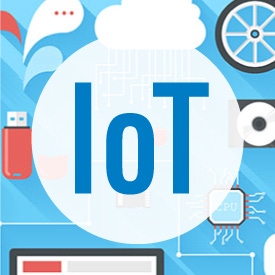
Also in today's EMEA regional roundup: Virgin Group looks at Yoigo; EU exempts mobile from social tariffs; Ericsson's mobile money move.
Alcatel-Lucent (NYSE: ALU) is to collaborate with US chipmaker Sequans Communications to create technologies that can power Orange (NYSE: FTE)'s new prototyping platform for the Internet of Things (IoT), which the French carrier calls "4G Kit for IoT." The 4G Kit for IoT consists of Sequans's LTE chipset incorporated into a three-band M.2 module for LTE bands 3, 7 and 20, supporting Orange's LTE network and offering IoT/M2M device makers the chance to connect to Orange's LTE network. A series of 200 "kits" will be tested with developers to help create new IoT devices.
The UK-based Virgin Group is looking to buy Yoigo , the Spanish mobile operator, from Sweden's Telia Company , reports Reuters, citing Spanish newspaper El Economista. Last year there was talk of Jazztel acquiring Yoigo, but it came to nothing. (See Eurobites: Spain's Jazztel Tunes In to Yoigo.)
The European Union Court of Justice has ruled that the Universal Service Directive, which defines the minimum set of services that must be available to all end users within the EU -- including those on low incomes who might not be able to afford standard-price services -- does not apply to mobile communications. The case was brought before the Belgian courts in 2013 by mobile operators BASE and Mobistar SA , who argued that they should not have to pay a share of their profits to finance costs arising from the need to provide so-called "social tariffs."
Ericsson AB (Nasdaq: ERIC) has formed a global partnership with VeriFone Mobile Money, a provider of mobile payment systems for retail point of sale. VeriFone's software will be integrated with the Ericsson Wallet Platform, enabling Ericsson's customers to offer a range of contactless and tap-and-pay services at point of sale.
UK regulator Ofcom is proposing new price controls on what BT Group plc (NYSE: BT; London: BTA) charges for use of its high-speed leased lines. The proposed controls, which are linked to inflation and based on the UK's consumer price index, will result in what BT can charge for such services coming down each year for three years, starting in April 2016.
Fon , the Madrid-based WiFi specialist that encourages its users to share their WiFi connections with others to grow its footprint, has surpassed 15 million hotspots worldwide. Its speedy growth is partly attributable to recent partnerships with Vodafone Group plc (NYSE: VOD) in Spain and Italy. Fon has also promoted its long-time COO, Alex Puregger, to CEO.
Denmark's TDC A/S (Copenhagen: TDC) has announced it has successfully completed an early field test of the DOCSIS 3.1 standard in combination with Huawei Technologies Co. Ltd. A downstream transmission rate of 840 Mbit/s was recorded.
A UK MVNO is about to launch a SIM card that, it claims, will automatically connect users to whichever UK mobile network is offering the best signal, wherever they happen to be. The BBC reports that the company, Anywhere SIM, will charge a premium for the "national roaming" service, with calls on the most basic tariff costing 5 pence (7.7 US cents) per minute, texts costing 5 pence each and data 5 pence per megabyte.
— Paul Rainford, Assistant Editor, Europe, Light Reading
Read more about:
EuropeAbout the Author(s)
You May Also Like











